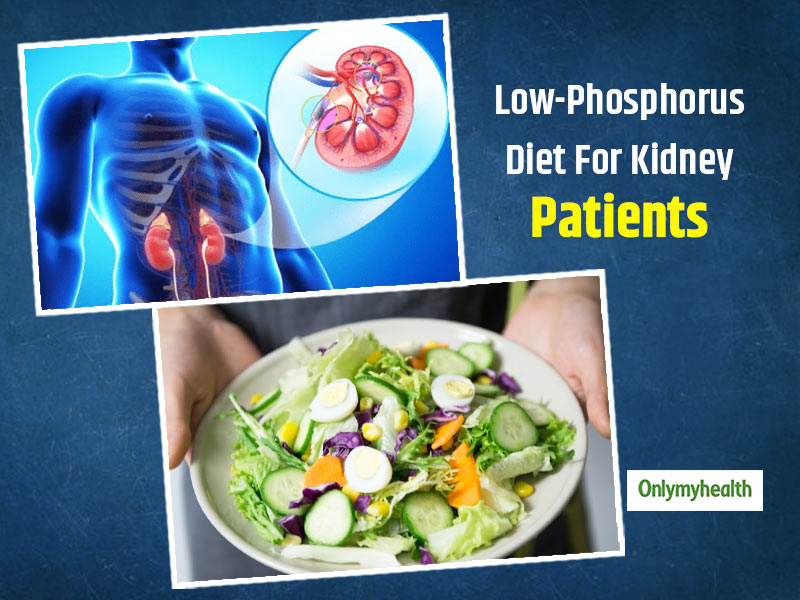
While phosphorus is beneficial for most people, it can be harmful when consumed in excess. When phosphorus is too much in the blood it pulls calcium from your bones leaving them weak & brittle. Also, too much phosphorus may make your skin itch and cause potential hardening of blood vessels. People with kidney disease can have trouble removing it from their blood and may need to restrict or limit their phosphorus intake in their diet. According to Priyanka Agarwal, Department of Dietetics & Nutrition, Max Super Speciality Hospital, Vaishali and Max Multi Speciality Centre, Noida, it is essential for kidney disease patients to take advice from Nutritionist before doing any restrictions in their diet.
Table of Content:-
What is the ideal dosage of phosphorous?
Phosphorous is an essential mineral that your body uses to the formation of healthy bones & teeth, create energy and make new cells and tissues.
According to ICMR, the recommended dietary allowance(RDA) of Phosphorus for different age groups are:
- Children (1-9yrs) - 600mg
- Boys & Girls (10-17yrs)- 800mg
- Men & Women- 600mg
- Pregnant & Lactating Women- 1200mg
What is Low-Phosphorous Diet?

As explained above, phosphorus is an essential mineral for the body. While phosphorus deficiency is bad, it's good for kidney patients. It is because kidneys play the role of extra phosphorous removal from the body. A person with ailing kidneys may develop high phosphorous levels in the body causing hyperphosphatemia. Thus, a low-phosphorus diet is suggested for kidney patients such as the ones suffering from early-stage renal disease or people who are on dialysis. Limiting phosphorous-rich foods in your diet can reduce the risk of developing heart diseases.
Also Read: Tooth Ache and Bleeding Gums Could Be Signs Of Phosphorus Deficiency In Your Body
How to limit phosphorus in the diet?
Almost all foods(especially packaged foods) contain phosphorous. This is why limiting phosphorus is not as easy as it seems. You need to know all the foods that are high in phosphorus as well as foods with low-phosphorus content. Find below the list for your reference and try to avoid as many phosphorus-containing foods as possible. Watch out your meals to know the total amount of phosphorus you consume in a day. Besides, also get your renal analysis done regularly.
High-phosphorus foods
Here is a list of foods that have maximum phosphorus content:
- Fast foods, packaged foods or convenient foods
- Cheese spread, processed cheese, milk, yogurt, non-dairy creamers
- Processed meat like ham, meat, bacon, chicken nuggets, poultry, seafood with phosphorus
- Cold drinks, flavoured water, sports drink, bottled teas, wine, alcohol

Also Read: Started Going To The Gym? Avoid Aggressive Exercising As It May Cause Kidney Failure
Low phosphorous foods
These are foods low in phosphorus content:
- Home-grown foods and homemade meals
- Lean meat such as eggs, lamb, fish, seafood
- Frozen fruits, sorbet or sherbet
- Plain water, ginger ale, lemon-lime soda, tea made from tea bags, coffee made with coffee beans
Always check the food labels
When you are avoiding any ingredient, checking the food labels of purchased items is a must. This helps in checking whether that food contains the ingredient or not. Similarly, when you are limiting phosphorus in your diet, make sure that you check the labels for any ‘phos’ in it. Phosphoric acid, calcium phosphate, disodium phosphate, monopotassium phosphate, etc. are some examples. This helps in avoiding the food and maintaining your low-phosphorus diet.
Read More Articles in Healthy Diet
Read Next
Eating Red Lentils or Masoor Dal Aids Weight Loss, Know Other Health Benefits of Red Lentils
How we keep this article up to date:
We work with experts and keep a close eye on the latest in health and wellness. Whenever there is a new research or helpful information, we update our articles with accurate and useful advice.
Current Version